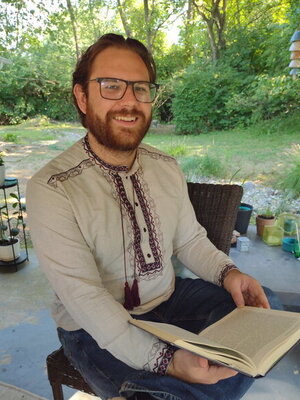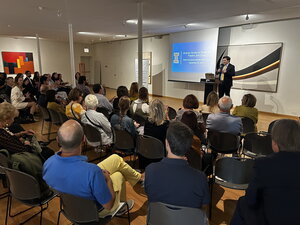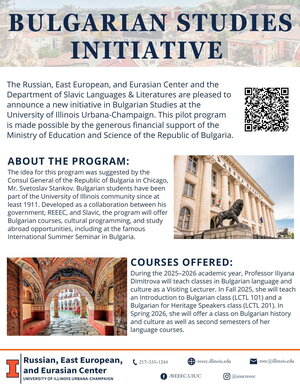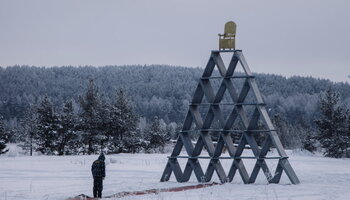Russian, East European, and Eurasian Center
REEEC at Illinois
The Russian, East European, and Eurasian Center is home to a wide variety of programs for members of the university community and the general public designed to expand understanding of and promote knowledge about Russia, and the countries of Eastern and Central Europe, the Balkans, the Caucasus, and Central Asia. REEEC receives major support for programming and FLAS fellowships through the U.S. Department of Education through its Title VI program, for which REEEC serves as a designated National Resource Center.
Featured News
- On September 28, 2025, REEEC, the Slavic Department, and the Ukrainian Studies Fund hosted a public engagement event in Chicago at the Ukrainian Institute of Modern Art. This event raised over $50,000 in support of Ukrainian Studies at the University of Illinois Urbana-Champaign. Read full story REEEC and Slavic Host Fundraiser in Chicago to Support Ukrainian Studies at Illinois
- REEEC is pleased to welcome two visiting scholars this fall: Iliyana Dimitrova from the University of Veliko Tarnovo St. Cyril and St. Methodius in Bulgaria and Oleksandr Kovrov from the Dnipro University of Technology in Ukraine. Read full story REEEC Welcomes Bulgarian Studies Scholar and BridgeUSA Fellow
- REEEC and Slavic announce a new initiative in Bulgarian Studies sponsored by the Republic of Bulgaria. This pilot program will sponsor courses in Bulgarian language, culture, and history at Illinois, as well as create new opportunities to study in Bulgaria for Illinois students and faculty. Read full story Republic of Bulgaria Supports New Bulgarian Studies Initiative at the University of Illinois

M.A. REEES/M.S. LIS Student Spotlight: Joseph Mosse'
Joseph Mosse' is a first-year student in the dual M. A. Russian, East European and Eurasian Studies and M. S. in Information and Library Science. He was born in Fullerton, California, but grew up in Ukraine, mostly in Odessa. He received his B.A. in Social Studies Education, with concentrations in Historical Perspectives and Government and Citizenship from Taylor University in Indiana and taught High School Social Studies for four years. After Russia's full-scale invasion of Ukraine in 2022, Joseph moved from teaching to humanitarian aid work in Europe and the United States....
More News
- 2025-09-15 - REEEC and Slavic have jointly formed the Illinois Ukrainian Studies Committee. This standing committee coordinates efforts across the university related to Ukraine. Its members include faculty, students, and staff from the College of LAS, Law, Music, Gies, and the Library.
- 2025-09-08 - By Karina Povsteva (MA graduate, Slavic Languages and Literatures) Laura Clarissa Loew is a PhD student at the Department of Central Eastern European History at Justus Liebig University in Gießen (Germany), and the 2025 recipient of the Fisher Fellow Award. The Fisher Fellow Award offers support to junior scholars to attend the Summer Research Lab at the Russian, East...
- 2025-07-29 - As a result of World War II, the newly founded socialist Polish state faced unprecedented changes in economic, social, and political life. Against the backdrop of the need for reconstruction, forced industrialization, and the establishment of a new socialist statehood, the narrative of “social advancement” emerged as one of the leading promises of Socialist Poland. The discourse on social...








